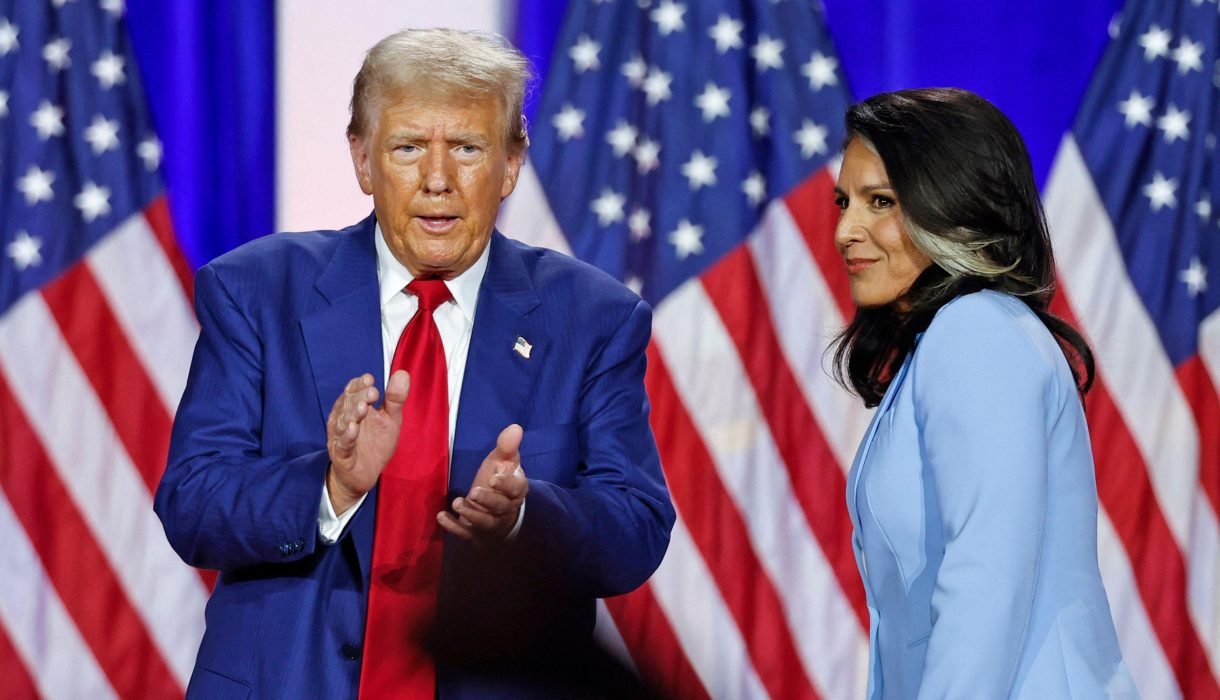
The Dark Side of Loyalty: An Analysis of the Trump Administration
This blog post explores how political loyalty in the Trump administration—embodied by figures like Pam Bondi and Rupert Murdoch—often eclipsed ethical principles. It reveals how loyalty-driven decisions led to human rights abuses, media manipulation, and the normalization of unethical behavior, particularly in immigration policy and Christian nationalism. The post calls for accountability, ethical governance, and a reevaluation of blind allegiance in politics.
The ethical implications of loyalty within the Trump Administration, focusing on figures like Pam Bondi and Rupert Murdoch. It examines how moral compasses have shifted in the face of political allegiance, highlighting the significant impact on human rights, immigration policies, and propaganda efforts.
In a world where the lines of morality and politics blur, the Trump administration stands as a stark example of loyalty overshadowing ethical considerations. Picture this: a high-ranking official dons their Christian cross while justifying actions that undermine human rights. This striking image embodies the moral quandaries at play within the current political landscape. As we dive deeper into the intricacies of loyalty to power, figures like Pam Bondi come to the forefront, revealing the unsettling truth behind their allegiance. Can we truly separate morality from politics, or have we entered an era of blind loyalty?
The Ethics of Political Loyalty
Loyalty in politics is a complex and often contentious issue. It raises questions about morality, ethics, and personal beliefs. What does it mean to be loyal in a political context? Is loyalty always a virtue, or can it lead to ethical compromises? These questions are particularly relevant in today’s political climate.
Overview of Loyalty in Politics
Political loyalty can be defined as a commitment to a party, leader, or ideology. This loyalty often shapes decisions and actions. For instance, individuals may prioritize their allegiance over ethical considerations. This can lead to troubling outcomes. When loyalty supersedes morality, it can create a culture of complicity.
- Political loyalty can manifest in various forms, such as party loyalty, loyalty to a leader, or loyalty to a specific ideology.
- It can drive individuals to support policies or actions that they might otherwise oppose.
- In extreme cases, loyalty can lead to the justification of unethical behavior.
Impact of Loyalty on Ethical Decision-Making
Loyalty can significantly impact ethical decision-making. When individuals prioritize loyalty, they may overlook moral implications. This can result in decisions that harm others. For example, during the Trump administration, many officials faced criticism for their unwavering support of policies that were deemed unethical.
Consider the case of Pam Bondi, a prominent figure in the Trump administration. Her actions raised eyebrows, particularly her alignment with policies that dehumanized vulnerable populations. Critics argue that her loyalty to Trump overshadowed her ethical responsibilities. This raises an important question: How does loyalty shape our moral compass?
The Role of Personal Beliefs in Political Actions
Personal beliefs play a crucial role in political actions. They can either reinforce loyalty or challenge it. For instance, individuals who hold strong ethical beliefs may find themselves at odds with party lines. This conflict can lead to difficult choices. Should one remain loyal to a party or stand up for what is right?
In the context of the Trump administration, many individuals grappled with this dilemma. Some chose to align with the administration’s controversial policies, while others spoke out against them. This division highlights the tension between loyalty and personal ethics.
Ultimately, the interplay between loyalty, ethics, and personal beliefs is complex. It requires individuals to navigate a landscape filled with moral ambiguity. As political landscapes evolve, the need for critical reflection on loyalty and its implications becomes increasingly important.
In summary, the ethics of political loyalty is a multifaceted issue. It challenges individuals to consider the consequences of their allegiances. As history shows, loyalty can lead to both positive and negative outcomes. The key lies in balancing loyalty with ethical considerations.
Pam Bondi: A Case Study in Ethical Compromise
Bondi’s Role in the Trump Administration
Pam Bondi served as the Attorney General of Florida and later became a prominent figure in the Trump administration. Her role was marked by a series of controversial decisions and statements that raised eyebrows across the political spectrum. As a top official, she was often seen as a loyal supporter of Trump, aligning herself with his policies and rhetoric.
Controversial Statements and Actions
Bondi’s actions often sparked debate. For instance, she was criticized for her involvement in the deportation of individuals to countries where their safety was at risk. One notable case involved the deportation of a man to El Salvador, which many viewed as a violation of human rights. Critics argued that her decisions reflected a troubling moral degradation within the administration.
- Her frequent appearances on Fox News were seen as a platform for spreading misinformation.
- Bondi claimed that Americans should apologize to Trump for his policies, a statement that many found manipulative.
- She often used Christian symbolism, which contrasted sharply with her actions that dehumanized marginalized communities.
“The number one job of this administration is propaganda like any authoritarian regime.”
Public Reception and Backlash
The public’s reaction to Bondi’s actions was mixed, but largely critical. Many viewed her as a symbol of the administration’s ethical compromises. The backlash was particularly strong among immigrant rights advocates, who condemned her role in the deportation policies. The narrative surrounding her actions often painted her as a figure who prioritized loyalty to Trump over ethical considerations.
Moreover, her statements about immigration and the treatment of deported individuals were met with outrage. Critics argued that her rhetoric served to rally a base that thrived on the suffering of marginalized communities. This led to a broader conversation about the moral implications of her actions and the administration’s policies.
Bondi’s career illustrates the complex interplay between loyalty and ethics in politics. Her actions and statements raise important questions about the moral compass of those in power. As the political landscape continues to evolve, the implications of her choices remain a topic of significant discussion.
Rupert Murdoch and the Media’s Role in Political Loyalty
Rupert Murdoch is a name that resonates deeply in the world of media and politics. His influence on public perception is profound. But how does one man’s vision shape the political landscape? Murdoch’s media empire, which includes Fox News, plays a pivotal role in crafting narratives that align with specific political agendas.
Murdoch’s Influence on Public Perception
Murdoch’s reach extends far beyond mere news reporting. He has the power to sway opinions and shape beliefs. This influence raises questions: Is the media merely a reflection of society, or does it actively mold public sentiment? The latter seems to be true in many cases.
- His outlets often present information in a way that supports certain political ideologies.
- Critics argue that this creates a biased narrative, leading to a misinformed public.
For instance, Fox News has been accused of propagating misleading information. This is not just about reporting the news; it’s about creating a narrative that aligns with the interests of those in power. As one commentator put it,
“Rupert Murdoch is the most culpable immoral man on the planet regarding the current political climate.”
The Relationship Between Media and Political Power
The relationship between media and political power is complex. Media outlets can either challenge or reinforce the status quo. In Murdoch’s case, his platforms often reinforce the political narratives that benefit his interests. This raises an important question: Are media companies responsible for the narratives they promote?
When media becomes a tool for political agendas, it can lead to dangerous consequences. For example, during the Trump administration, Fox News frequently aired segments that supported the president’s policies, regardless of their ethical implications. This complicity in promoting political narratives can conflict with fundamental human rights.
Examples of Media Narratives Supporting the Trump Agenda
Specific instances illustrate how Murdoch’s media empire has supported the Trump agenda:
- Fox News hosts often provided a platform for figures like Pam Bondi, who spread misinformation about immigration policies.
- The sensationalism surrounding immigration issues served to rally a base that thrives on fear and division.
Such narratives not only distort reality but also dehumanize marginalized communities. The portrayal of immigrants as threats, rather than individuals with rights, exemplifies this troubling trend. It raises a critical point: How can a society uphold its values when its media perpetuates division?
Murdoch’s influence on public perception and the relationship between media and political power cannot be understated. The examples of media narratives supporting the Trump agenda highlight the need for critical engagement with the information presented to the public. As the media landscape continues to evolve, the responsibility lies with both consumers and producers of news to seek truth and uphold ethical standards.
The Broader Implications of Loyalty Over Ethics
In recent discussions, the implications of loyalty to political figures have raised serious concerns. This loyalty often overshadows ethical considerations, leading to harmful policies, especially in immigration and human rights. The question arises: how far can loyalty go before it becomes detrimental?
Impact on Immigration and Human Rights Policies
One of the most alarming outcomes of this loyalty is its impact on immigration policies. When political figures prioritize loyalty over ethics, innocent lives are at stake. For instance, the deportation of individuals to dangerous situations is a stark reality. As one commentator noted,
“They are sending innocent people to a concentration camp in El Salvador.”
This statement highlights the severe consequences of prioritizing political allegiance over human rights.
- Deportations often occur without due process.
- Many deported individuals lack criminal histories.
- Policies are shaped by loyalty to political narratives rather than facts.
The Normalization of Unethical Behavior in Politics
Moreover, the normalization of unethical behavior in politics is troubling. Figures within the Trump administration, such as Pam Bondi, exemplify this trend. Bondi, known for her Christian symbolism, has been criticized for her role in dehumanizing individuals. This raises a critical question: can one truly uphold ethical standards while aligning with such actions?
The media plays a significant role in this normalization. Frequent appearances on platforms like Fox News allow individuals to spread misinformation. This creates a narrative that supports unethical policies. The complicity of media outlets in promoting these narratives cannot be overlooked. It fosters an environment where unethical behavior becomes acceptable.
Discussion on Christian Nationalism and Its Impact
Christian nationalism further complicates this landscape. It intertwines religious beliefs with political motivations, often leading to a troubling sense of entitlement among supporters. The speaker in the commentary pointed out the moral framework of evangelical Christians, questioning their alignment with Trump’s ideology. This raises another question: how can one reconcile faith with actions that harm marginalized communities?
- Christian nationalism often thrives on the suffering of others.
- It manipulates religious beliefs to justify harmful policies.
- Supporters may feel superior, overlooking the injustices faced by others.
The implications of loyalty over ethics are profound. They extend beyond individual actions to systemic issues within governance. As long as loyalty to political figures remains paramount, the risk of systemic abuse of power and violations of rights will persist. The challenge lies in recognizing these patterns and advocating for a more ethical approach to governance.
Rethinking Political Loyalty
As the discussion around political loyalty unfolds, it becomes clear that the lessons learned are profound. The actions of individuals within political administrations, particularly those surrounding controversial figures, reveal a troubling trend. This trend often prioritizes loyalty over ethics, leading to a moral degradation that can have far-reaching consequences.
Reflection on Lessons Learned
One key takeaway is the importance of critically examining the narratives presented by political leaders. For instance, the commentary on figures like Pam Bondi highlights how loyalty can sometimes overshadow the truth. When political representatives align themselves with questionable ideologies, it raises serious ethical concerns. Are they serving the public or merely advancing their own agendas?
This reflection encourages citizens to question the motives behind political actions. It’s essential to ask: Are these leaders genuinely working for the betterment of society, or are they simply perpetuating a cycle of misinformation and manipulation?
Call for Accountability in Political Practice
Accountability is crucial in political practice. The actions of those in power should be scrutinized, especially when they impact marginalized communities. The commentary emphasizes the need for a moral compass in governance. Without it, political leaders risk becoming complicit in systemic abuses, as seen in the treatment of immigrants and other vulnerable groups.
Moreover, the call for accountability extends beyond individual actions. It encompasses the entire political system. Citizens must demand transparency and integrity from their leaders. This is not just about holding individuals accountable; it’s about fostering a culture of ethical governance.
The Need for a Moral Compass in Governance
In today’s political climate, the need for a moral compass is more pressing than ever. The commentary suggests that many political figures operate under a framework that prioritizes power over principle. This raises a critical question: What kind of society do we want to build? One that thrives on division and misinformation, or one that values truth and compassion?
As citizens, it is our responsibility to advocate for a political landscape that reflects our values. We must challenge narratives that dehumanize others and promote a more inclusive dialogue. This means standing against hypocrisy and oppression, especially when it comes from those who claim to represent our interests.
Rethinking political loyalty is not just an academic exercise; it’s a call to action. By reflecting on the lessons learned, demanding accountability, and insisting on a moral compass in governance, we can work towards a more just and equitable society. The future of democracy depends on our willingness to engage critically with the political narratives that shape our world.
TL;DR: This post examines how loyalty within the Trump administration, exemplified by figures like Pam Bondi and Rupert Murdoch, raises significant moral concerns regarding immigration policies and propaganda tactics, ultimately impacting human rights.
PoliticalPropaganda, RupertMurdoch, PamBondi, TrumpAdministration, Authoritarianism, HumanRights, ImmigrationPolicies, ChristianNationalism
#ChristianNationalism, #PamBondi, #TrumpAdministration, #RupertMurdoch, #ImmigrationPolicies, #HumanRights, #PoliticalPropaganda, #Authoritarianism,#TrumpAdministration, #PamBondi, #RupertMurdoch, #PoliticalLoyalty, #EthicsInPolitics, #ChristianNationalism, #ImmigrationPolicy, #FoxNews, #MediaBias, #HumanRights

